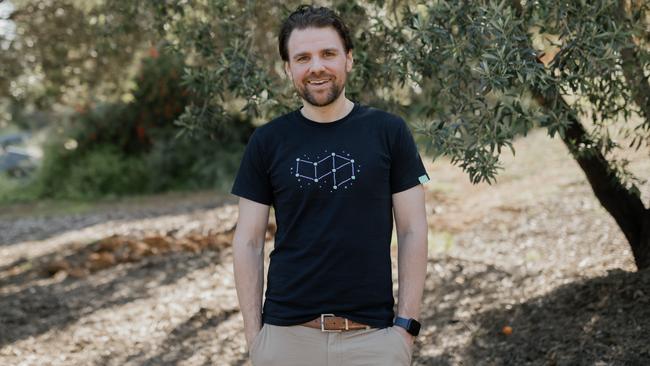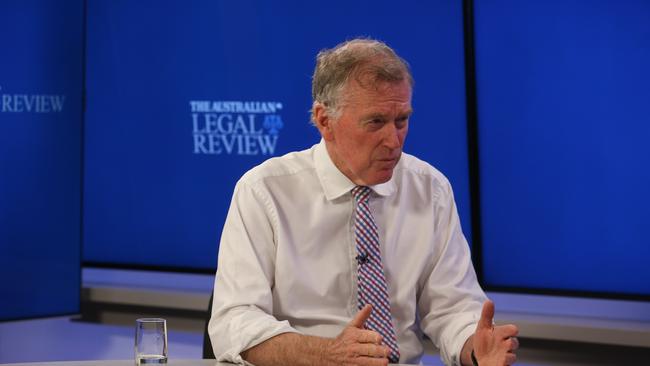
There were barely any clues provided on Monday for the startling resignation of Keith Pitt as CEO of software company Buildkite.
Hardly a skerrick of insight could be drawn from the press release announcing his departure, save for the wording of the title – “Leadership Transition” – which spoke of the bleeding obvious: that the young rich-lister and founder of this juggernaut was being kicked to kerb for some mysterious, unspecified sin, following 12 years of hard toil.
“Keith had defied all odds to create and bootstrap one of the most interesting technology companies in Australia and one of the most trusted names of developer tools in the world,” went the eulogy from Buildkite’s chair Barry Crist, who’s now managing this disorderly transition.
“I want to express our sincere gratitude to Keith for his numerous contributions over the past 12 years.”
Pitt’s exit is quite a fall from a high altitude, a far cry from the glazing he received out of the Fin Review in 2020 when Buildkite reached a pre-money valuation of $200m and Pitt was given a spot on the masthead’s Young Rich List. More glazing followed: a puff piece about his abilities as a magician; a write-up about the 2022 funding round, in which OneVentures, Airtree, General Catalyst and fintech entrepreneur Dominic Pym all tipped $31m into the business.
So was it Founder Syndrome that got him in the end? The dreaded Founderitis? Or are there are enough inferences to be drawn from workplace rant website Glassdoor, where employees have clearly given some spankings to Pitt over his leadership.

“The founder is a textbook example of how bad leadership can destroy a company from the inside out,” wrote one anonymous employee. “He employs ... tactics behind closed doors whilst outwardly playing the role of a magnanimous and cool tech bro,” said another.
And this signal flare put up from a third reviewer: “Board or investors: Please help us. If you read this, time to step in.”
Incidentally, we saw these posts on Friday and contacted Airtree and OneVentures to see if they were paying any attention to them. Neither responded to our inquiries, but Pitt deleted his LinkedIn account over the weekend and by Monday he was gone from Buildkite, turfed by the very board he was so “thrilled” to appoint in March 2023.
Isn’t it telling, too, that the Buildkite directors – Adam Gross, board chair Crist and OneVentures managing partner Michelle Deaker – were all amply aware of the CEO’s shortcomings? Complaints were made, that much we know.
This was practically an open secret in the hiveish world of baby tech unicorns, long before anything appeared on Glassdoor. The VCs with emissaries on the board, they knew what was up. They just waited for it to evolve into a five-alarm fire.
Sponsor spat
A mighty backdown from the Melbourne University Law Students’ Society, which has now removed a solidarity statement on Palestine that’s been on its website since August.
Turns out the law firms annually funding the society weren’t impressed by the language and sentiments contained in the document, and they made that displeasure very well-known after MULSS shook the can for more donations last month.
Message delivered, oh boy.
Sophie Sneyd, MULSS’s director of sponsorship, posted a letter to all the firms last week saying: “After carefully considering the feedback we received from numerous sponsors and stakeholders, we have removed the ‘MULSS Stance on Palestine’ from the MULSS website and all relevant social media.” Complaints from Jewish organisations didn’t have quite the same effect.
But the solidarity statement was only half the trouble.
Of greater concern was a donation made by MULSS to aid organisations in the Hamas-run territory of Gaza, which Sneyd confirmed had happened, but she said this had been funded from ticketed-event revenue, not sponsorship revenue. In any case, a second bank account would separate the sponsorship funds and “promote greater transparency going forward”, she said.

Craig Semple, partner at Gilbert and Tobin, replied to Sneyd two days later, carbon-copying G+T’s chair, Danny Gilbert, voicing his grave misgivings over the mission creep at MULSS.
“It has been, and remains, our view that it was not appropriate for MULSS to have issued the August 2024 Statement,” Semple wrote of the solidarity matter. “We reiterate that we do not expect funds we contributed (or raised through events we sponsor) to be used for the support of causes, but rather, to be used only directly for the benefit and welfare of its law student members.”
Semple also saved us the hassle of pointing out the other glaring problem with the funding, which is that some of the aid organisations, as he said, “have questionable humanitarian credentials and have been party to or facilitated the dissemination of antisemitic sentiments”.
Unlike Freehills, which has cut off its funding altogether, G+T has warmed to MULSS’s commitments and will keep the money tap on a little while longer.
Although we do wonder what Semple would make of MULSS’s Acknowledgement of Country statement on its website. It says Melbourne University’s law school sits on stolen land and therefore funding is being paid out to correct this injustice.
“A portion of the Society’s revenue is paid to various Indigenous organisations in recognition of our existence on stolen land,” the website says. “We encourage others to consider Paying the Rent with us.”
Which we’re sure is what the big law firms were always hoping their sponsorship dollars would be channelled towards.






To join the conversation, please log in. Don't have an account? Register
Join the conversation, you are commenting as Logout